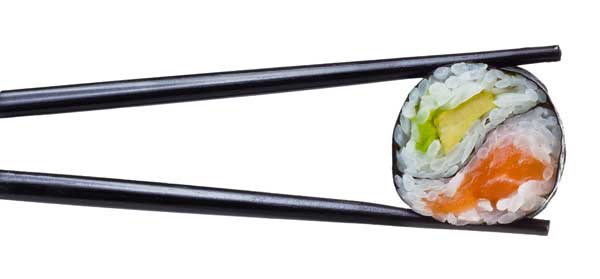Secrets of Maintaining Weight Loss

We’ve all heard that the chances of keeping weight off once you’ve lost it are pretty slim. I blogged about this a few weeks ago. But the good news is that maintaining weight loss is DEFINITELY possible. The National Weight Control Registry has tracked over 10,000 successful weight loss maintainers to identify what sets these people apart. I’ve always been curious to know how some people are able to keep the weight off whereas others regain. We now have some answers. So read on to learn about these “secrets” to increase your odds of keeping the weight off. If they can do it, so can you!
answers. So read on to learn about these “secrets” to increase your odds of keeping the weight off. If they can do it, so can you!
The National Weight Control Registry
The National Weight Control Registry (NWCR), was established in 1994 by Rena Wing, Ph.D. from Brown Medical School, and James O. Hill, Ph.D. from the University of Colorado. It’s the largest prospective investigation of long-term successful weight loss maintenance. The NWCR was developed to identify and investigate the characteristics of individuals who have succeeded at long-term weight loss. The NWCR is tracking over 10,000 individuals who have lost significant amounts of weight and kept it off for long periods of time. Detailed questionnaires and annual follow-up surveys are used to examine the behavioral and psychological characteristics of weight maintainers, as well as the strategies they use to maintaining their weight losses.
Who can enroll in the NWCR?
In order to join this research study, you need to have lost at least 30 pounds and kept it off for one year or more.
A little more about NWCR members:
-80% of persons in the registry are women and 20% are men.
-The “average” woman is 45 years of age and currently weighs 145 lbs, while the “average” man is 49 years of age and currently weighs 190 lbs.
-Registry members have lost an average of 66 lbs and kept it off for 5.5 years.
-Weight losses have ranged from 30 to 300 lbs.”Duration of successful weight loss has ranged from 1 year to 66 years!
-Some have lost the weight rapidly, while others have lost weight very slowly–over as many as 14 years
-A little over one-half of the sample lost weight through formal programs; the remainder lost weight on their own
Common characteristics of people who maintain weight loss
The Registry found very little similarity in how the individuals lost weight but some common behaviors in how they are keeping their weight off. These behaviors include:
#1. Eat breakfast. Eating breakfast is a characteristic common to successful weight loss maintainers and may be a factor in their success. 78% of successful maintainers reported regularly eating breakfast every day of the week. 4% reported never eating breakfast.
#2. Activity. 90% of the participants exercise, on average, about 1 hour per day. Walking was the most common form of activity. So there’s no getting around it, staying active is a major part of keeping the weight off. pic credit 
#3. Consistent self-weighing. How many times have you avoided the scale because you didn’t want to see the “damage” that occurred? Weeks turn into months and before you know it, your weight is up 10 pounds. 75% of successful maintainers weigh themselves at least once a week. This may help to catch weight gains before it escalates and allow you to make behavior changes to prevent additional weight gain. Study
#4. Consume a low calorie low fat diet. Successful maintainers of weight loss reported continued consumption of a low-calorie and low-fat diet. Women in the registry reported eating an average of 1,306 kcal/day (24.3% of energy from fat); men reported consuming 1,685 kcal (23.5% of energy from fat). Study
Other characteristics of successful weight loss maintainers
It gets easier in time. Once these successful maintainers have maintained a weight loss for 2-5 years, the chances of longer-term success greatly increase.
Less variety. Ever hear of the smorgasbord effect? The more food choices you have in front of you, the more you will eat. Successful weight loss maintainers tend consume a diet with limited variety in all food groups, especially foods higher in fat. Restricting variety within all food groups may help with consuming a low-energy diet and maintaining long-term weight loss. This isn’t saying you have to eat a boring diet, just don’t give yourself too many options. pic credit
Consistency. If you’re one of those people who frequently indulge on the weekends and they try to make up for it during the week, think again! You are likely setting yourself up for weight regain. Participants who reported a consistent diet across the week were 1.5 times more likely to maintain their weight within 5 pounds over the subsequent year than participants who dieted more strictly on weekdays. Study 
Less screen time. 62% watch less than 10 hours of TV per week.
Very strict over the holidays. The typical person tends to gain a few pounds over the holidays and never lose it. The majority of successful weight loss maintainers are “extremely strict” in maintaining their usual dietary routine and exercise routine over the holiday. Study
Low carb works too. While the majority of people maintained their weight loss on a low fat diet, ~ 11% of people kept the weight off on a low carb diet. Keep in mind that the results I obtained from this study was from a few years ago. My personal opinion is that the percentage of successful maintainers on low carb diets might be higher than 11% at this point. So bottom line, there is no one diet that works for everyone. Low fat, low carb – find what works for you and most importantly, what you can maintain. Study
Nip it in the bud. Although successful weight losers continued to maintain a large percentage of their weight  losses over 2 years, recovery from even minor weight regain was uncommon. However, small regains were common, and few persons were able to re-lose weight after any weight regain. So forget the vacation mentality – “I’ll eat more now and make up for it later”.
losses over 2 years, recovery from even minor weight regain was uncommon. However, small regains were common, and few persons were able to re-lose weight after any weight regain. So forget the vacation mentality – “I’ll eat more now and make up for it later”.
Medical triggers work. While no one wants to have a medical issue, it’s been shown that medical triggers may produce a teachable moment for weight control, resulting in better initial weight loss and long-term maintenance. Nearly 77% of the sample reported that a triggering event had preceded their successful weight loss. Participants with medical triggers reported greater initial weight loss than those with nonmedical triggers or no trigger. Participants with medical triggers also gained less weight over 2 years of follow-up than those with nonmedical triggers or no trigger. An example of a medical trigger is if you’ve been told you have prediabetes/diabetes or high high blood pressure. Losing weight – and keeping it off – can have a dramatic effect on your health. Study pic credit

The bottom line: This study goes to show that you CAN maintain your weight loss. What we’ve learned from the
participants in the NWCR is that good nutrition, physical activity, maintaining a consistent eating pattern across weekdays and weekends and self-monitoring are important for keeping the weight off once it has been lost. No one is saying it’s easy … but you can definitely beat the odds!
What do YOU find most difficult about maintaining your weight loss? Feel free to add your comments!
RELATED POSTS
Sorry, we couldn't find any posts. Please try a different search.
MEET MARTHA
I especially love problem-solving, whether it’s helping women defeat issues plaguing them for years, helping a busy executive find practical ways to get heart healthy, or providing tips to help you reverse diabetes. That’s why I’m on a constant quest to expand my knowledge by staying on top of the latest research.

20 Ways To Eat Out 550 Calories or Less!
No time to cook? We’ve got you covered. Here are 20 healthy meals from a variety of cuisines that won’t pack on the pounds. Most of them also have less than 30 grams of carbs.
Subscribe to my newsletter and get this free download.

